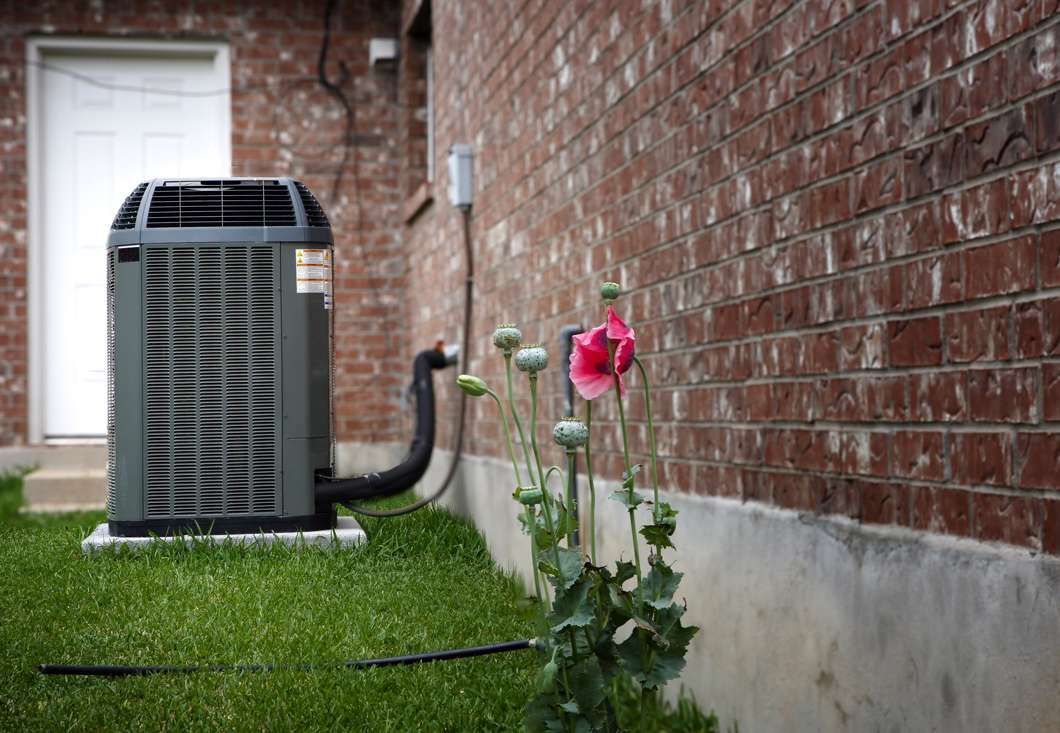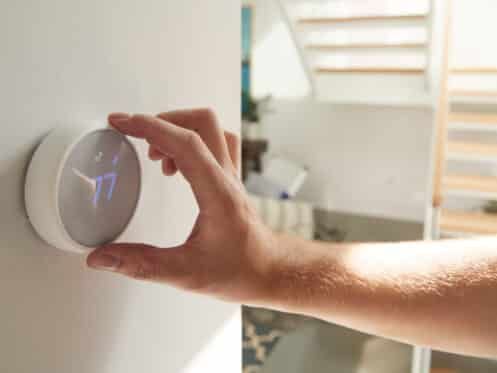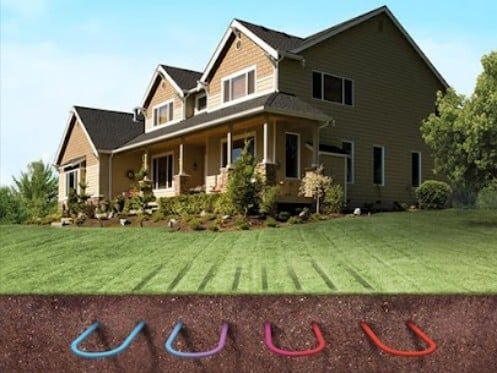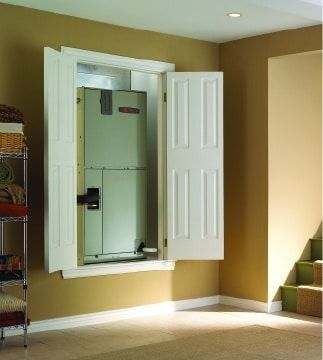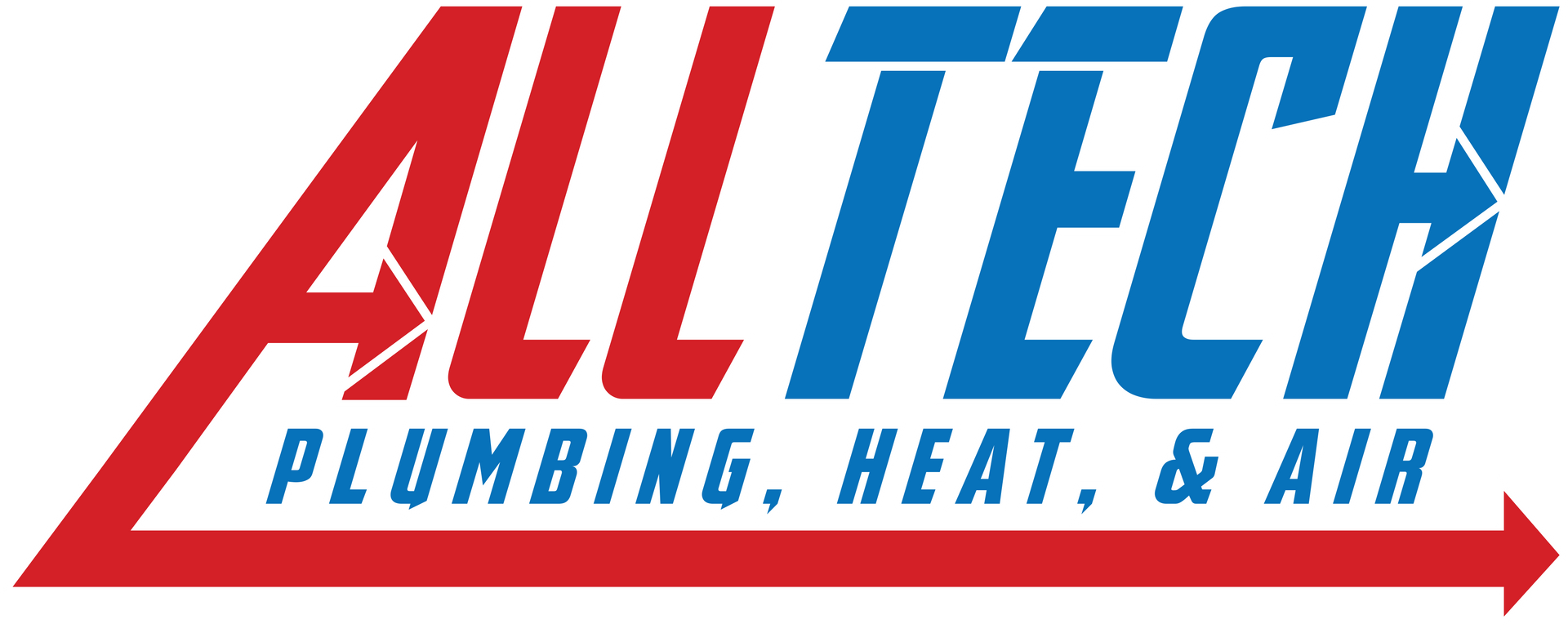THE ULTIMATE GUIDE TO HVAC FILTERS: TYPES, RATINGS, AND REPLACEMENT
Taking the time to carefully choose the right HVAC filters for your home is essential to staying comfortable. HVAC filters are like warriors against harmful airborne particles, including dust, pollen and pet dander. Some can even protect you and your home against certain viruses and bacteria. To keep your Oklahoma home healthy and happy, make sure to carefully select HVAC filters using this in-depth guide.
CHOOSING THE RIGHT FILTER
You have many filter options to choose from. Speaking with a certified air quality professional is the best way to choose the right type. When deciding on an HVAC air filter, always consider your demands in terms of air quality, whether or not you have allergies and which filters are compatible with your system. You should also think about the filter’s material, its MERV rating and whether it’s better to use disposable or reusable filters. Tailoring your selection to your unique needs will improve the performance of your heating and cooling systems.
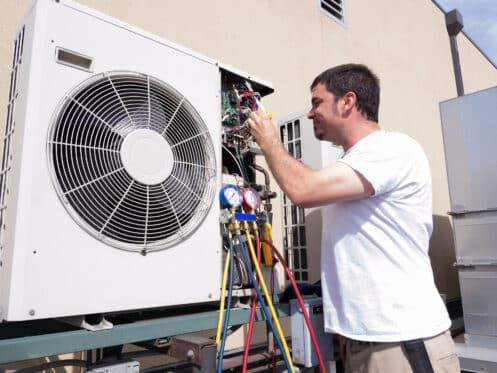
WHAT IS A MERV RATING?
MERV ratings indicate how well filters trap and remove airborne particles. A higher rating indicates a more efficient filter. The scale runs from 1 to 20. Although greater MERV filters are better at capturing tiny particles, they can restrict airflow. Not every system can handle a high-MERV filter. This is why it’s imperative to match the filter’s MERV rating to your HVAC system.
FIBERGLASS FILTERS
The MERV rating for fiberglass filters usually falls between one and five. The laminated fiberglass strands that make up these filters provide some rudimentary defense against bigger particles. However, even though they are inexpensive, they do a poor job of catching fine particles. If your home’s air quality isn’t too bad, a fiberglass filter will function well with most HVAC systems.
HEPA FILTERS
High-efficiency particulate air (HEPA) filters are very effective at absorbing tiny particles; their MERV ratings range from 17 to 20. These filters, constructed from many layers of thick fiber, don’t work well with older or less powerful systems. HEPA filters can significantly limit airflow, but they do an excellent job of preventing allergy symptoms. Although they are pricier, they are ideal for places that value exceptional air quality because of their superior filtering capabilities. They can even combat viruses and bacteria.
UV FILTERS
Since UV filters use a different filtering mechanism, most don’t come with a MERV rating; nonetheless, they are frequently used in combination with other filters. To eliminate or destroy airborne microorganisms such as viruses and bacteria, UV filters emit ultraviolet-C light. Their ability to work with a wide range of HVAC systems makes them a good fit for houses that place a premium on microbial management. They are another type of filter that can protect the home from bacteria and viruses.
PLEATED FILTERS
The MERV ratings of pleated filters typically fall between five and 13, meaning they can effectively filter particles of various sizes. Pleated filters have a bigger surface area thanks to their composition of folded sheets, which increases their efficacy. They perform best in homes with moderate-to-high air quality problems. Many homes choose them because of their increased efficiency and compatibility with common HVAC systems.
ELECTRONIC AIR CLEANERS
Electrostatic filters, which are electronic filters, generally have a MERV rating between one and 12. These filters are very effective because they employ an electric charge to trap particles of different sizes. Electronic filters are ideal for houses with modest air quality problems and are compatible with a variety of HVAC systems, including central heating and air conditioning systems.
ACTIVATED CARBON FILTERS
A typical MERV value for an activated carbon filter is between eight and 12. Intriguingly, activated carbon filters adsorb contaminants without actually absorbing them. Adsorption is the process of particles adhering to the surface of a material, as opposed to absorption, which is the process of substances absorbing into the material itself. Because of its porous nature, activated carbon has a large surface area that effectively absorbs and neutralizes gases, smells and other chemical substances. Their exceptional adsorption capability is one reason why they are so popular for water and air purification.
FACTORS THAT IMPACT FILTER REPLACEMENT FREQUENCY
How often you should replace HVAC air filters depends on several things. To start, there’s the filter type; filters with a higher MERV rating tend to get dirtier faster. Other important factors to consider are your heating and cooling preferences, if you live in a very active family and whether you have any inside pets. Hot summers and dusty climates are two seasonal elements that put extra stress on Oklahoman filters, necessitating more frequent replacements. Spring pollen levels might also affect how often to change a filter. To maintain the best HVAC efficiency and indoor air quality throughout the many seasons in Oklahoma, check the filter’s condition once a month and replace it as needed.
WAYS TO MAKE AIR FILTERS LAST LONGER
There are some simple things you can do as a homeowner to make air filters last longer. Using these tips not only extends their lifespan but also makes them work better.
IMPROVE VENTILATION
One of the best ways to prolong the life of your air filter is to improve the ventilation in your house. Enhanced air circulation disperses particles more uniformly, reducing the likelihood of a buildup of concentrated particles on the filter. With enough airflow, the filter doesn’t have to work as hard to trap particles, and it can do it for longer.
SEALING AIR LEAKS
Another key to extending the life of an air filter is sealing any air leaks. This is because air leaks allow contaminants to enter your home. Some of the most harmful ones include dust, pollen, mold spores and pesticides. These contaminants make air filters work harder, and they put unnecessary strain on HVAC systems. If you notice a leak around a window or door, try to fix it with weatherstripping, caulk or a door sweep. To make sure you take care of all air breaches, experts use cutting-edge methods such as blower door testing to locate and seal hidden leaks.
REGULAR HVAC MAINTENANCE
Have a professional service your HVAC system to extend the life of your air filter. By cleaning and inspecting the components, they make certain the system will work at its best. The goal of these adjustments is to make the filter work better and to stop problems from happening that put extra strain on the HVAC system. To decrease the inflow of unfiltered air, experts routinely check the ductwork for leaks and fix them. All of these things add up to a well-kept HVAC system. In turn, this reduces wear and tear on the air filter and encourages a longer life cycle with better efficiency.
All Tech Heat & Air excels at helping homeowners improve indoor comfort with a variety of home services. Some of our specialties include mini-split maintenance, plumbing repairs, duct cleaning and geothermal installations. When you need help picking out the right air filter for your Lawton, OK, home, contact All Tech Heat & Air.
